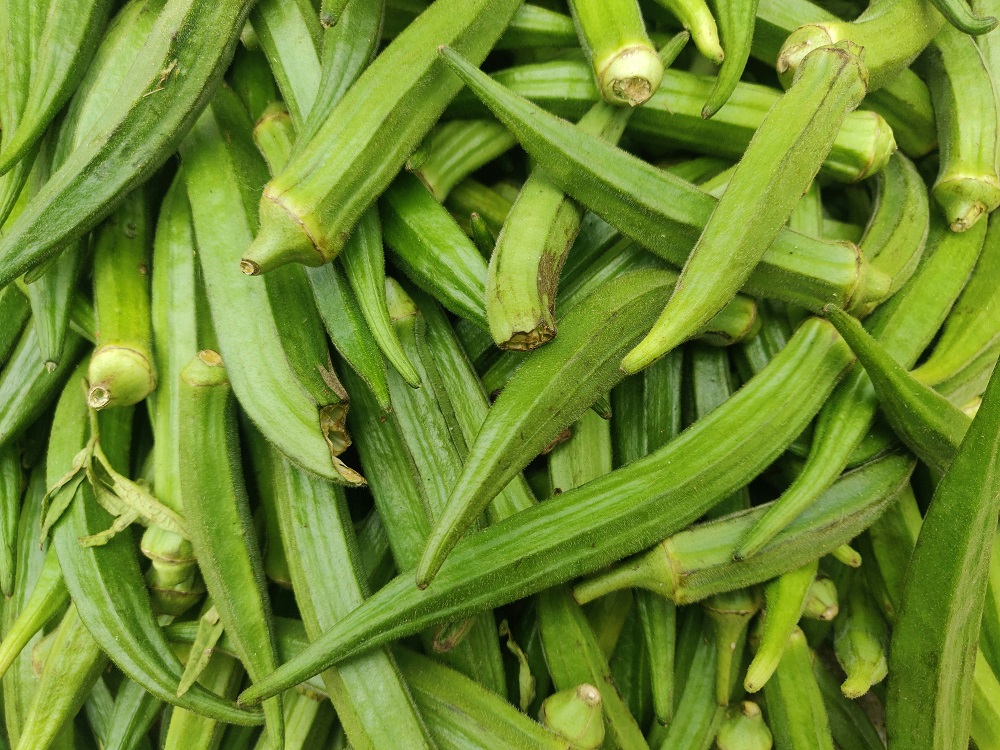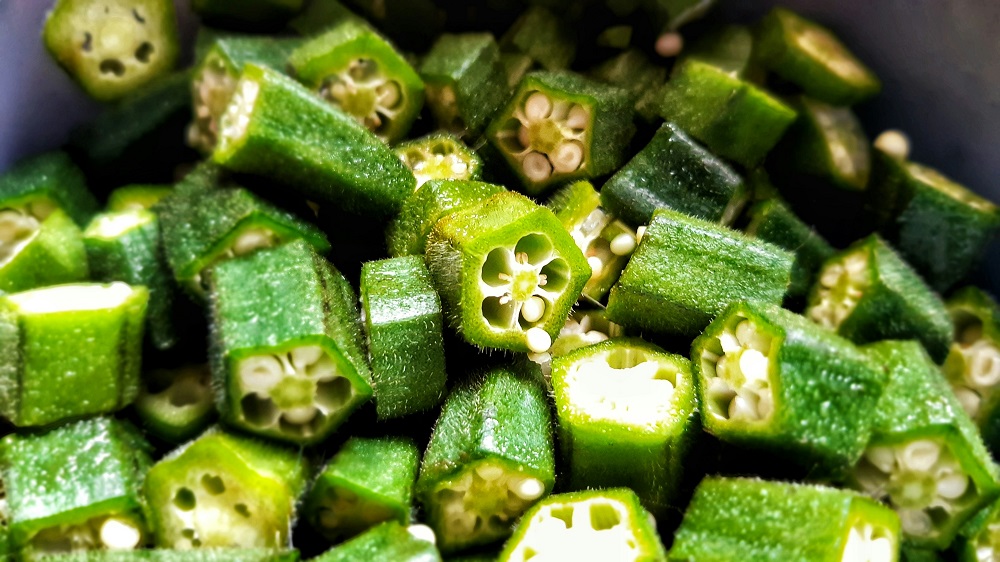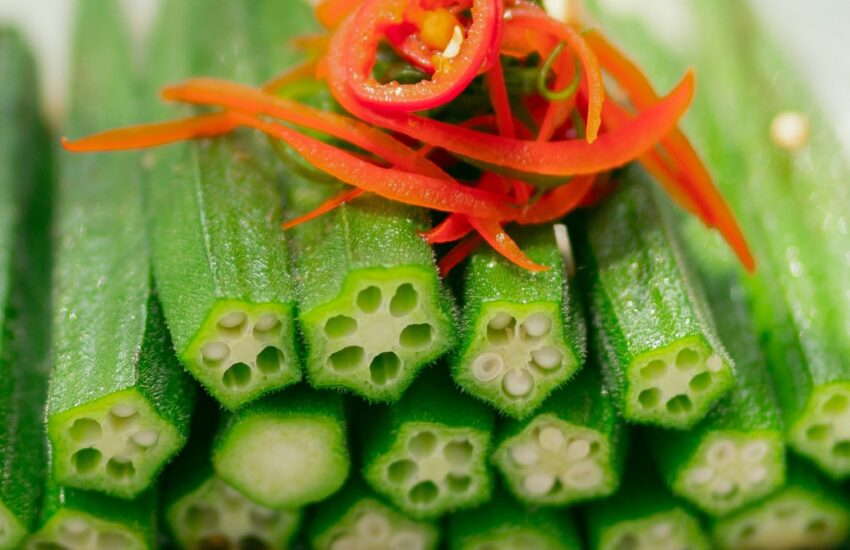“Lady finger,” also known as “okra” or “bhindi,” is a green, elongated vegetable with a tapering end, commonly used in various cuisines around the world. Lady fingers are slender, green pods that are typically 2-3 inches long. They have a ridged texture on the surface and a slightly sticky sap when cut, which can be used as a natural thickening agent in cooking. To prepare lady fingers, wash them thoroughly and pat them dry before slicing or cooking. They can be cooked quickly over high heat to retain their crisp texture or slow-cooked in stews and curries for a softer consistency. Lady fingers or Bhindi are not only delicious but also nutritious, offering a range of health benefits when incorporated into a balanced diet. Accordingly Mohit Tandon from USA, followings are the some of the Health Benefits of Bhindi ( Lady’s Finger).
1. Rich Source of Nutrients:
Bhindi, also known as Lady’s Finger or Okra, is a vegetable prized for its nutritional value. It is rich in vitamins such as vitamin A, vitamin C, and various B vitamins like folate and vitamin B6. Additionally, it provides essential minerals including potassium, magnesium, and calcium. These nutrients play crucial roles in supporting overall health and well-being.
2. High in Dietary Fiber:
One of the standout health benefits of bhindi is its high dietary fiber content. Fiber is important for digestive health as it promotes regular bowel movements, prevents constipation, and supports a healthy gastrointestinal tract. A diet rich in fiber can also help manage cholesterol levels and contribute to weight management by promoting satiety.
3. Supports Heart Health:
Bhindi is beneficial for heart health due to its fiber content and low levels of saturated fats and cholesterol. Fiber helps reduce cholesterol absorption in the gut, thereby lowering blood cholesterol levels. Potassium, another nutrient found in bhindi, helps regulate blood pressure and supports cardiovascular function.
4. Anti-Diabetic Properties:
Research suggests that bhindi may have anti-diabetic properties, making it beneficial for individuals with diabetes or those at risk of developing the condition. The soluble fiber in bhindi helps stabilize blood sugar levels by slowing down the absorption of sugar into the bloodstream. – Mohit Tandon USA
5. Supports Weight Management:
As a low-calorie and nutrient-dense vegetable, bhindi is an excellent addition to a weight loss or weight management diet. Its high fiber content promotes feelings of fullness and reduces cravings, which can help control calorie intake. Additionally, bhindi is naturally low in fat and carbohydrates.
6. Promotes Digestive Health:
Especially, The fiber content in bhindi supports digestive health by adding bulk to stool and facilitating regular bowel movements. This can prevent constipation and reduce the risk of gastrointestinal disorders. Bhindi also contains mucilage, a gel-like substance that lubricates the digestive tract and soothes inflammation.

7. Boosts Immune Function:
Especially, Bhindi contains significant amounts of vitamin C, an essential nutrient known for its immune-boosting properties. Vitamin C stimulates the production of white blood cells, which are key players in the body’s immune response against infections and illnesses. – Mohit Tandon USA
8. Supports Vision Health:
The vitamin A content in bhindi is beneficial for maintaining good vision and eye health. Vitamin A is essential for the proper functioning of the retina and helps prevent age-related macular degeneration, a common cause of vision loss in older adults.
9. Anti-Inflammatory Benefits:
Bhindi contains antioxidants such as flavonoids and phenolic compounds that possess anti-inflammatory properties. These antioxidants help neutralize free radicals in the body, reducing oxidative stress and inflammation that can contribute to chronic diseases.
10. Promotes Skin Health:
The combination of vitamin C and antioxidants in bhindi contributes to healthy skin by supporting collagen production and protecting skin cells from damage caused by UV radiation and environmental pollutants. Regular consumption of bhindi may help maintain youthful and radiant skin. – Health Benefits Of Bhindi (Lady’s Finger) : Mohit Tandon USA
11. Supports Bone Health:
Bhindi is a good source of calcium, magnesium, and vitamin K, all of which are important for maintaining strong and healthy bones. Calcium and magnesium contribute to bone density, while vitamin K plays a role in bone metabolism and helps prevent osteoporosis.
12. Improves Brain Function:
The folate (vitamin B9) content in bhindi is essential for brain health and cognitive function. Folate plays a role in the synthesis of neurotransmitters like serotonin and dopamine, which are involved in mood regulation and cognitive processes such as memory and concentration.

13. Regulates Blood Pressure:
Surely, Potassium, a mineral found in bhindi, helps regulate blood pressure by counteracting the effects of sodium and relaxing blood vessel walls. A diet rich in potassium from sources like bhindi may help lower blood pressure levels and reduce the risk of hypertension-related complications.
14. Provides Antioxidant Protection:
Bhindi contains various antioxidants, including vitamin C, vitamin A, and polyphenols, which help protect cells from oxidative damage caused by free radicals. Antioxidants play a role in reducing the risk of chronic diseases such as cancer, cardiovascular disease, and diabetes.
15. Enhances Hair Health:
The vitamins and minerals in bhindi contribute to healthy hair growth and maintenance. Surely, Vitamin C promotes collagen production, which is essential for hair structure and growth. Additionally, the iron content in bhindi helps transport oxygen to the hair follicles, promoting strong and lustrous hair.
Incorporating bhindi into your diet can provide a range of health benefits, supporting various aspects of overall health from digestion to immune function and beyond.
